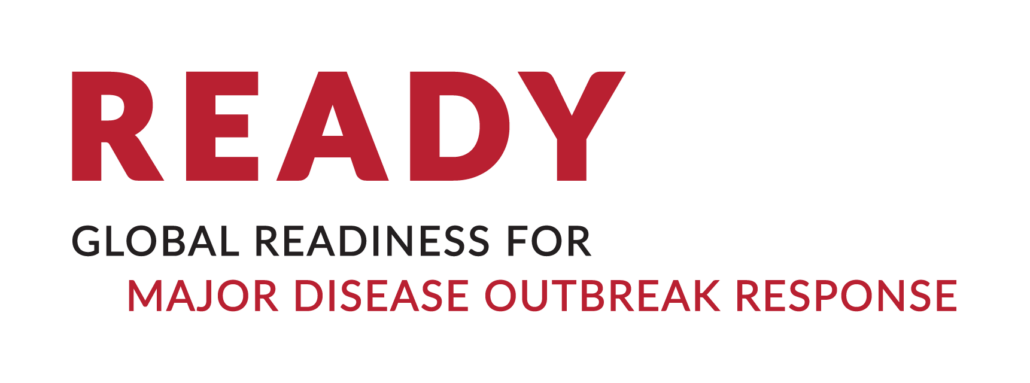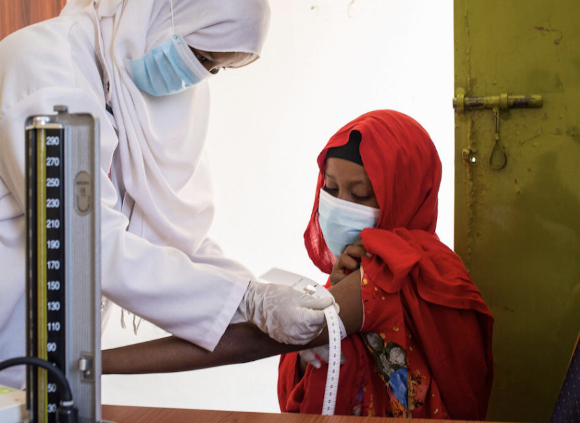Quels services de santé dans les contextes humanitaires ne devrions-nous PAS fournir pendant le COVID-19 ?
Intervenants : Prof. Karl Blanchet, Centre d'études humanitaires de Genève ; Dr Esperanza Martinez, CICR ; Dr Teri Reynolds, OMS ; Dr Apostolos Veizis, MSF-Grèce ; Professeur Kjell Johansson, Univ. de Bergen
La pandémie de COVID-19 a entraîné des perturbations sans précédent dans la fourniture des soins de santé de routine. Il est crucial de garantir un accès continu aux soins de santé essentiels non liés à la COVID-19. Mais quelles interventions de santé devraient être considérées comme essentielles dans les situations de crise humanitaire ? Rejoignez le professeur Karl Blanchet du Centre d'études humanitaires de Genève et sélectionnez des intervenants pour explorer cette question controversée, bien que cruciale.
MODÉRATEUR: Professeur Karl Blanchet, professeur et directeur du Centre d'études humanitaires de Genève : Karl Blanchet est professeur en santé publique humanitaire et directeur du Centre d'études humanitaires de Genève à l'Université de Genève et à l'Institut de hautes études internationales et internationales. Le professeur Blanchet est également l'un des cofondateurs de la plateforme humanitaire COVID-19.
PANÉLISTES
- Docteur Esperanza Martinez, Responsable de la santé au Comité international de la Croix-Rouge (CICR) : Le Dr Martinez est chargée de superviser la fourniture de services de santé humanitaires aux populations touchées par la guerre et la violence dans plus de 80 pays à travers le monde. Le Dr Martinez est médecin et chirurgienne générale, formée en Colombie et spécialisée en santé publique internationale et en gestion de la santé en Australie. Son expérience comprend plus de dix ans de travail sur le terrain dans des pays touchés par des conflits ainsi que de collaboration avec des agences des Nations Unies, des organismes gouvernementaux et le secteur privé.
- Dr Teri Reynolds, Responsable des services cliniques et des systèmes, Organisation mondiale de la Santé : Teri Reynolds dirige l'unité des services cliniques et des systèmes au sein du département des services de santé intégrés au siège de l'Organisation mondiale de la Santé à Genève. L'unité des services cliniques et des systèmes rassemble pour la première fois les travaux de l'OMS sur les canaux de prestation intégrés - notamment les soins primaires, les soins d'urgence, les soins intensifs, les soins chirurgicaux et les soins palliatifs - avec un nouvel accent sur l'organisation efficace et la circulation des personnes dans l'ensemble du système de santé. Le Dr Reynolds a précédemment dirigé les programmes de soins d'urgence et de traumatologie de l'OMS et coordonne actuellement les efforts visant à maintenir les services de santé essentiels pendant l'épidémie de COVID-19. Elle était auparavant professeure et directrice de la santé mondiale au département de médecine d'urgence de l'université de Californie à San Francisco et a dirigé les programmes de résidence et de recherche en médecine d'urgence à l'hôpital national de Muhimbili en Tanzanie pendant plusieurs années.
- Dr. Apostolos Veizis, Directeur du soutien médical opérationnel, Médecins Sans Frontières-Grèce : Apostolos Veizis est médecin généraliste. Il travaille au siège de Médecins Sans Frontières-Grèce en tant que directeur de l'unité de soutien médical opérationnel (SOMA). Auparavant, le Dr Veizis a travaillé comme chef de mission et coordinateur médical pour Médecins Sans Frontières et Médecins du Monde en Azerbaïdjan, en Fédération de Russie, en Albanie, en Égypte, en Géorgie, en Grèce et en Turquie, et a participé à de nombreuses évaluations sur le terrain, missions d'urgence et évaluations.
- Professeur Kjell Johansson, Bergen Centre for Ethics and Priority Setting, Université de Bergen : Kjell Arne Johansson (MD, PhD) est médecin et professeur d'éthique médicale au Bergen Centre for Ethics and Priority Setting (BCEPS) du Département de santé publique mondiale et de soins primaires de l'Université de Bergen. Ses intérêts de recherche comprennent l'établissement de priorités, la justice distributive et les méthodes d'impact sur l'équité appliquées à la santé mondiale. Actuellement, il est président de l'International Society for Priorities in Health (ISPH). En outre, le professeur Johansson travaille cliniquement en médecine de la toxicomanie en tant que consultant principal et chercheur principal au Département de médecine de la toxicomanie de l'hôpital universitaire de Haukeland, où il participe à un essai qui évalue le traitement intégré de l'hépatite C pour les consommateurs de drogues injectables.


Ce site Web est rendu possible grâce au soutien du peuple américain à travers le Agence des États-Unis pour le développement international (USAID) dans le cadre de l’initiative READY. READY (pas un acronyme) est soutenu par l'USAID Bureau pour la démocratie, les conflits et l'assistance humanitaire, Bureau américain d'assistance en cas de catastrophe à l'étranger (OFDA) et est dirigé par Sauver les enfants en partenariat avec le Centre Johns Hopkins pour la santé humanitaire, le Centre Johns Hopkins pour les programmes de communication, Royaume-Uni-Med, Alliance ÉcoSanté, et Miséricorde Malaisie. Le contenu de ce site Web relève de la seule responsabilité de Save the Children. Les informations fournies sur ce site Web ne reflètent pas nécessairement les points de vue de l'USAID, de l'un ou de tous les partenaires du consortium, ou du gouvernement des États-Unis, et ne constituent pas des informations officielles du gouvernement américain.


